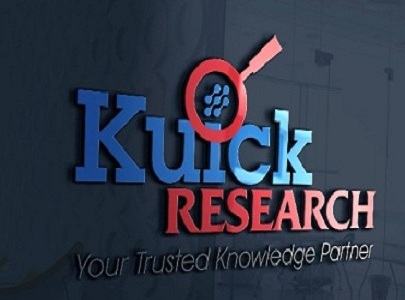
Global Personalized Cancer Vaccine Market Outlook 2028 Report Highlights:
Personalized cancer vaccines are novel formulation which requires screening of appropriate antigens in particular patient for the development of vaccine. In last few years, personalized vaccines have gained maximum interest from research institutions, pharmaceutical companies, and researchers owing to their high specificity and targetability towards the individual disease. The novel personalized cancer vaccine is designed according to individual’s genetic makeup, and therefore has the ability to overcome the limitation of conventional vaccines which showed efficacy in only some sub population. Further, it also reduces the cost and chance of failure of drugs in the cancer patients.
One of the critical steps in the development of personalized vaccine is the identification of tumor specific antigens or neoantigens to maximize the potential of vaccine. Research studies have identified large subsets of neoantigens which are unique to cancer cells and are not affected by immune tolerance, and thus can be utilize as potential targets for vaccine development process. Neoantigens such as programmed death ligand-1, tumor mutational burden, and several other receptors are currently being exploited in clinical trials for the development of personalized vaccines.
As of now, no personalized cancer vaccine has been authorized for clinical use in the global market. However, more than 50 personalized cancer vaccines have paved their ways in clinical trials, suggesting encouraging future outlook of this segment. For instance, BioNTech has recently announced initial data from an ongoing investigator-initiated first-in-human Phase-I study evaluating the safety and tolerability of the mRNA-based individualized neoantigen specific immunotherapy (iNeST) autogene cevumeran (also known as BNT122, RO7198457) in combination with anti-PD-L1 immune checkpoint inhibitor atezolizumab and chemotherapy in patients with resected pancreatic ductal adenocarcinoma (PDAC). The initial results of the trial suggest encouraging clinical activity.
Although personalized cancer vaccines have demonstrated huge success in clinical trials, the market is hampered by the lack of effective screening methods for neoantigen. However, with the advent of bioinformatics, machine learning, and artificial intelligence, researchers are continuously advancing the pool of neoantigens. For instance, NEC Corporation has developed neoantigen prediction algorithm which uses artificial intelligence such as graph-based relational learning, which is joint with other sources of data to discover candidate neoantigen targets. The algorithms carefully access the candidate neoantigens, with a primary focus placed on its in-house major histocompatibility complex (MHC) binding affinity prediction trained on public and proprietary datasets. These allow NEC to effectively prioritize the numerous candidate neoantigens identified in a single patient.
The global personalized cancer vaccine is highly competitive and key players have adopted strategic alliances to maintain strategic edge in the global market or to utilize each other technologies to maximize the potential of their vaccine candidate. Recently in 2022, Innovent Biologics entered into research collaboration agreement with NeoCura to conduct a clinical trial in China evaluating the combination of sintilimab and NEO_PLIN2101 across solid tumors. NEO_PLIN2101 developed by Neocura is an investigational personalized neoantigen vaccine which can be designed according to the unique tumor gene mutation of each patient. In early trials, the novel vaccine has shown stronger specificity and immunogenicity in comparison to conventional approach.
The majority of clinical trials are present in phase-I/II stages and therefore it is expected that personalized cancer vaccine approach will enter the market in next 3-5 years. The presence of large number of ongoing clinical trials associated with their promising results, huge investments from government as well as pharmaceutical companies, as well as clinical benefits of personalized vaccine over traditional approaches are the major factor which will boost clinical research and market authorization of personalized vaccines the growth of market in coming years.